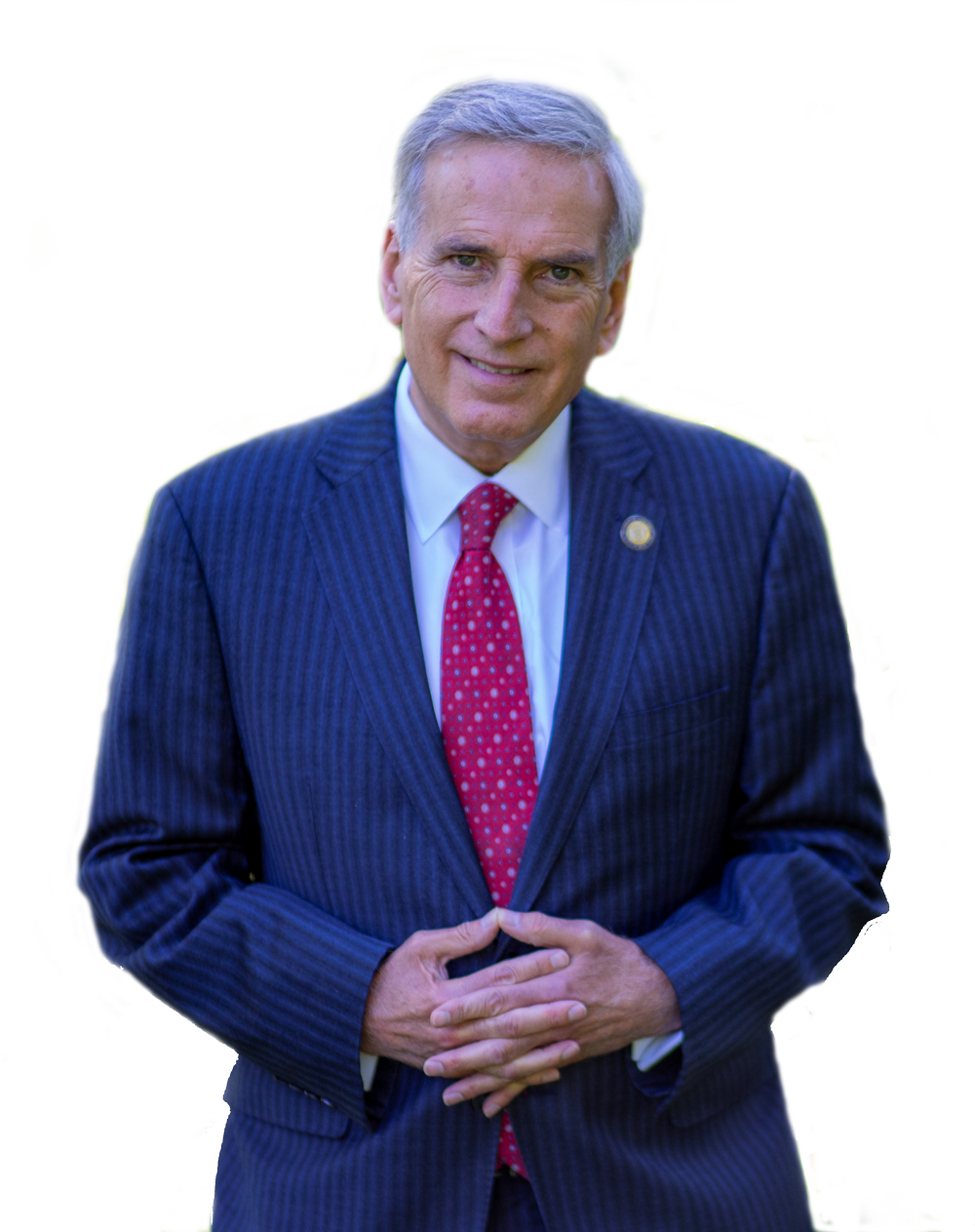Assemblyman David Weprin and Major Advocacy Coalition Stand Together to Oppose Proposed Visitation Cuts at Maximum Security Prisons
New York, New York – Assemblyman David Weprin, Chair of the Assembly Committee on Correction, was joined by a broad coalition of prison reform advocates on the steps of City Hall to stand in opposition to the proposed reduction of visitation days at New York State’s maximum-security prisons. The plan, part of the 2017/2018 Executive Budget Proposal for New York State, would reduce visitation at New York’s maximum security prisons from seven days a week, as is now, to three days per week. The reduction in visitation would also allow the state to save $2.6 million by eliminating 39 Full Time Positions.
Speaking from the steps of City Hall, Weprin noted the already high demand for visits as a reason to oppose the cuts, as well as past research which has shown that visiting helps to decrease recidivism and reduce violence at corrections facilities. He also voiced concern that the reduction would unfairly penalize the families of the incarcerated by limiting the days when families would be allowed to visit.
Weprin’s remarks were followed by comments from the following speakers:
Ebony Underwood of the Osborne Society
Peter Kostmayer of the Citizens Committee for New York City
Robert J. De Sena and Sean Dino Johnson of the Council for Unity
Professor John Pfaff of Fordham Law School and author of Locked In: The True Causes of Mass Incarceration—and How to Achieve Real Reform
Jack Beck, Gail T. Smith and Anisah Sabur of the Correctional Association of New York
Bernadette E. Brown of the New York Civil Liberties Union
Tina Luongo of The Legal Aid Society
Barry Campbell of The Fortune Society
Victor Pate of the Campaign for Alternatives to Isolated Confinement
Leah Glitter of MHASC (Mental Health Alternatives to Solitary Confinement)
Tamar Kraft-Stolar of the Women & Justice Project
Soffiyah Elijah of the Alliance of Families for Justice
Laura Whitehorn of Release Aging People in Prison (RAPP) and the National Council for Incarcerated and Formerly Incarcerated Women and Girls.
“The amount gained by enacting this proposal does not match what is lost” said Assemblyman David Weprin, Chair of the New York State Assembly Committee on Correction. “Increased visiting has been proven to reduce recidivism, as visits help family members maintain ties with people in prison, and there is some evidence to suggest that more visiting means less violence in prisons, offering a better work environment. I am hopeful that this morally inhumane and financially shortsighted proposal will be removed from this year’s New York State Final Enacted Budget.”
''Council for Unity has been serving correctional facilities since 1999. We're in Sing-Sing, Suffolk County Correctional and Rikers Island. Reducing visit time from 7 to 3 days for inmates will have a devastating effect on morale; it will raise tension and stress and could lead to increased conflict. This must not be adopted” said Robert J. De Sena, Founder & President of the Council for Unity.
“Through our work at The Fortune Society, we know firsthand that people in prison who maintain important connections through visits from family and friends have an easier and more successful re-entry home than those who don’t. The visits our clients receive while incarcerated make a big difference in their lives – both ‘inside’ and in the success they can achieve after release. From helping keep family and community ties alive, to contributing to their emotional and behavioral health, those visits give incarcerated individuals hope that they have something to come home to. And while there may be some cost-savings by reducing visitation, the potential long-term human and societal cost of failed re-entry and recidivism will be far greater. And this is simply a cost that New York cannot afford” said JoAnne Page, President and CEO of The Fortune Society.
"The NYCLU strongly opposes reducing visitation hours at maximum security facilities. Sound public policy should strengthen bonds with family and community; these bonds reduce recidivism and promote public safety. This proposal is terribly misguided: it is anti-family” said Bernadette E. Brown, Deputy Legislative Director at the New York Civil Liberties Union.
“This is a short sighted proposal that will disproportionately penalize communities of color, and does absolutely nothing to improve public safety or reduce recidivism. The evidence is very clear,” said Tina Luongo, Attorney-in-Charge of the Criminal Practice at The Legal Aid Society. “Replacing visits with video conference is also no alternative for face-to-face family interaction which in many times serves as the only contact inmates have with the outside world. Governor Cuomo should look at other areas to cuts cost that do not have punitive impacts for families of the incarcerated.”
“Incarcerated people I visit in Comstock, Bedford, and other maximum security facilities have worked hard to nurture valuable relationships with families and friends. Visits are critical to that. Cutting back to weekend visits will make many family visits impossible, as these facilities already have small visiting areas that result in over-crowding on weekends. The cost to the families – especially children and grandchildren – will be incalculable. The governor’s plan may be designed for economic reasons, but it will result in a huge price for the health and welfare of families and incarcerated people alike. The proposed cut-back is cruel and unnecessary” said Laura Whitehorn of Release Aging People in Prison (RAPP) and the National Council for Incarcerated and Formerly Incarcerated Women and Girls.
The Correctional Association of New York said, "The CA firmly opposes a recent proposal in Governor Cuomo’s budget to restrict the number of days on which those incarcerated at maximum security prisons in New York can receive family visits. Promoting and encouraging visiting recognizes the humanity of the individuals inside, assisting them to view themselves as more than an incarcerated person, but rather a father, mother, sibling, spouse, partner – an important member of a family. Don't take away this essential part of keeping families together. "
